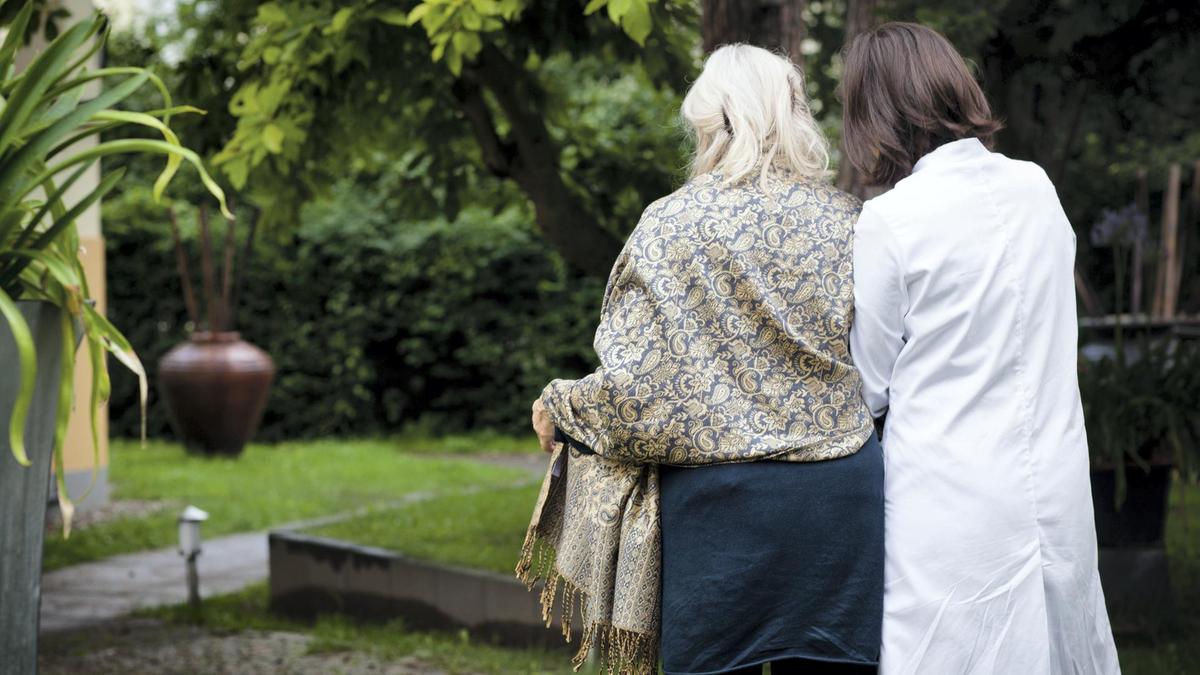Learn about brain health and nootropics to boost brain function
Stressed carers need more support as Alzheimer’s cases increase


People who care for patients with Alzheimer's disease are suffering from anxiety, depression and "burnout" and need more support.
Dr Harry Horgan, a clinical psychologist at the German Neuroscience Centre in Dubai, said the true extent of the stress placed on people who tend to loved ones round the clock is only now being realised.
He said that as more patients show memory loss, confusion and behavioural change brought on by the disease, a greater support network is needed to help a growing band of carers, who are often left to deal with the trauma of seeing a loved one mentally disintegrate.
“We know 25-30 per cent of people in a caring role for someone with Alzheimer’s will experience a significant level of anxiety and clinical depression,” said Dr Horgan.
“That is a much higher rate than the general population."
Profound personality changes in Alzheimer’s patients and occasional aggressive outbursts can be shocking and hard to deal with for families.
The degenerative brain disease usually begins with memory loss or forgetfulness before progressive executive dysfunction, impulsivity and loss of inhibition.
There is no treatment, although a blood test predicting the likelihood of one suffering from the disease in the future could soon be a reality.
Doctors have said unpredictability often leads to lack of sleep for carers and family members, affecting their mental well-being.
Close to 50 million people are living with the disease worldwide.
Rates of depression vary between 23 and 85 per cent among carers in developed countries, with 45 per cent reporting that they experienced anxiety.
“There is severe anxiety in many carers for the course of the illness,” said Dr Horgan.
“Alzheimer's is not fully understood, but is believed to have become more prevalent as more of us live longer, particularly women.

“There is some good work to break the stigma internationally, such as from the Alzheimer’s society, but there is work to be done.
“Stigma still exists and some families try to hide it from friends so the person lives a very quiet life, retired from public view.”
There are usually seven stages of cognitive decline with Alzheimer’s disease but not all patients experience the same symptoms.
The condition affects a patient's memory, thinking, language, problem-solving and even personality and mobility as the disease progresses.
“People can be quite well for some time before any restructuring needs to take place,” said Dr Horgan.
“Carers need to know when to ask for help. There is some support in the UAE but there is a long way to go.
“If you are going to be a carer for someone, you need to care for yourself also. Everyone takes a break, but carers are often looking after someone 24/7. That leads to burnout.”
We know 25-30 per cent of people in a caring role for someone with Alzheimer’s will experience a significant level of anxiety and clinical depression
Support programmes are available at the Dubai Health Authority Seniors’ Happiness Centre, the Enayati Geriatrics centre and at the Dementia Care Home Service.
Sublime Nursing and Nurseco in Dubai also offer specific care programmes for patients with dementia.
The Priory Wellbeing Centre in Dubai offers support for family caregivers, who often express feelings of fear and denial, although therapy is rarely covered by health insurance.
“The mental health impact on caregivers can include stress and anxiety as a result of the uncertainty about what to expect as the disease manifests,” said Mandeep Jassal, a clinical therapist.
“Anger and frustration are natural, as is resentment about how the role of caregiver will impact their lives.
“It is common to experience intense feelings of grief and depression at the deep sense of loss of the relationship, which can also lead to feelings of hopelessness.”
Therapists also provide help for those with Alzheimer’s by working to improve their understanding of symptoms and how to manage them.
Medicine can be prescribed for insomnia and to help reduce agitation and disorientation that leads to wandering.
“Alzheimer’s is a very difficult disease that is frightening and debilitating for the sufferer, plus it has a huge impact for their family and friends,” said Professor Wolfgang Maier, a German psychiatrist in Dubai.
“When the carer’s needs and well-being are neglected they also face mental health problems like burnout and depression.
“In Europe and the US there are more support services available than in this part of the world, so carers here are often left feeling isolated.”
Click here to view full article